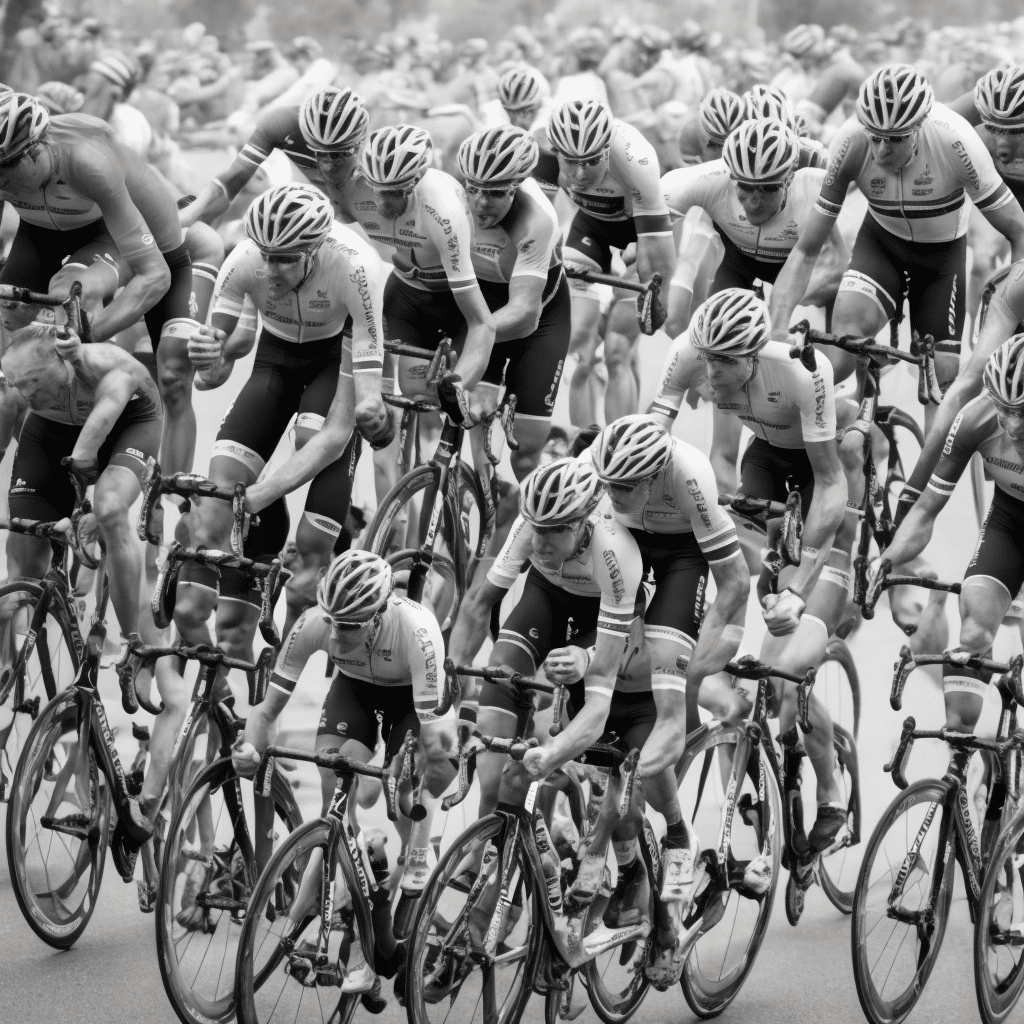What Nutritional Interventions Can Optimize Recovery During Multi-Stage Cycling Races?

As the summer sporting calendar starts to fill up, all eyes will be on the world’s best cyclists as they prepare to take on grueling multi-stage races. From the famed Tour de France to the lesser-known Giro d’Italia, multi-stage cycling races require not only physical prowess but also an understanding of how to fuel your body effectively for optimum performance and recovery.
In this article, we will delve into the world of nutritional interventions that can help cyclists optimize their recovery during these punishing events. We will be focusing on: hydration strategies, the importance of carbohydrate intake, the role of protein in recovery, the use of supplements, and the timing of food intake.
Avez-vous vu cela : How to Apply Differential Learning in Skill Development for Team Sports?
Hydration Strategies
Cyclists will often lose large volumes of sweat during intense multi-stage races, making adequate hydration critical to their performance and recovery. Dehydration can lead to fatigue, impaired muscle function, and decreased blood volume, which can significantly affect a cyclist’s ability to perform at their best.
Maintaining optimal hydration starts before the race even begins. Athletes should ensure they are well-hydrated in the days leading up to the race, aiming to consume around 2-3 liters of water per day. During the race, cyclists should aim to consume 500-1000 ml of fluid per hour, depending on the conditions. Electrolyte drinks containing sodium can also be beneficial, as sodium helps to retain fluid and replace the electrolytes lost through sweat.
Lire également : How Can Neuromuscular Training Prevent Ankle Sprains in Basketball Players?
Importance of Carbohydrate Intake
Carbohydrates play a critical role in providing energy during high-intensity exercise, such as cycling. This is because carbohydrates are quickly and efficiently converted into glucose, which is the body’s preferred source of fuel during intense activity.
During multi-stage races, cyclists should aim to consume around 60-70 grams of carbohydrates per hour of racing. This can be achieved through a combination of sports drinks, energy gels, and carbohydrate-rich foods.
In the recovery phase, cyclists should aim to consume 1.2 grams of carbohydrates per kg of body weight per hour for the first 4 hours after exercise, to replenish glycogen stores. Foods high in high-glycemic-index carbohydrates, such as white rice and pasta, can help to speed up this replenishment process.
Role of Protein in Recovery
Protein is an essential macronutrient for muscle repair and growth. After a gruelling stage, the body needs protein to repair the damaged muscle fibers and to stimulate new muscle growth.
Cyclists should aim to consume around 20-30 grams of high-quality protein within the first hour after a stage, and then continue to consume protein-rich foods throughout the day. Protein sources can include lean meats, fish, eggs, dairy products, and plant-based sources such as lentils and chickpeas.
Some research has suggested that combining protein with carbohydrate in the post-exercise meal can enhance glycogen synthesis and thus recovery. Therefore, meals such as chicken and pasta, or a protein shake with a banana, could be beneficial.
Use of Supplements
Supplements can be a useful tool for cyclists looking to optimize their recovery during multi-stage races. However, it’s important to remember that supplements should not replace a well-balanced diet, but rather be used to support it.
Creatine monohydrate, a popular supplement among athletes, can help to replenish ATP stores, increase lean body mass, and reduce muscle damage and inflammation.
Branched-chain amino acids (BCAAs) can also be beneficial in promoting muscle protein synthesis and reducing muscle soreness after intense cycling stages.
Timing of Food Intake
When it comes to recovery, the timing of food intake can be just as important as what you eat. The body is most responsive to nutrient uptake in the 30 to 60-minute window after intense exercise, often referred to as the ‘golden hour’.
During this ‘golden hour’, cyclists should aim to consume a meal or snack containing both high-quality protein and high-glycemic-index carbohydrates. A protein shake with a banana, a chicken and rice dish, or some Greek yoghurt with honey and granola are all good options.
After this initial recovery meal, cyclists should continue to consume regular meals and snacks containing protein and carbohydrates every 2-3 hours, to continue replenishing energy stores and promote muscle repair and growth.
Through implementing these nutritional strategies, cyclists can optimize their recovery during multi-stage races, helping them to perform at their best, day after day. As always, it’s important to remember that everyone is different, and what works for one person may not work for another. Therefore, it’s recommended that cyclists experiment with different strategies during training, to find what works best for them.
Managing the Digestive System
Another point of consideration for cyclists is being cognizant of their digestive system. Racing demands high-intensity physical activity which can potentially affect digestion. To this end, athletes must choose foods that are easy to digest to maintain optimal performance and recovery.
The selection of food should be low in fat and fiber, as these can slow down the digestion process and may cause gastrointestinal distress. Eating a meal three to four hours before the race allows the body ample time to digest. The choice of food can include a combination of lean proteins and simple carbohydrates. Foods like white rice, pasta, chicken breast, bananas, and honey are easily digestible and provide the necessary nutrients.
In the case of mid-race snacks, cyclists should opt for foods that are easily consumable and provide quick energy. Energy bars, gels, and isotonic drinks can be consumed while cycling and provide the necessary carbohydrates and electrolytes.
Post-race, the focus should be on replenishing glycogen stores and aiding muscle recovery. A balanced meal containing high-glycemic-index carbohydrates, lean proteins, and a small amount of fat can be beneficial. The meal can be consumed within two hours of completing the race to utilize the body’s heightened nutrient absorption capacity.
Sleep and Rest
Just as important as nutrition is the need for adequate rest and sleep. The recovery process greatly benefits from quality sleep as it is during this period that the body repairs and rebuilds muscles. Research has shown that lack of sleep can lead to decreased performance, slower recovery, and increased risk of injury.
Cyclists should aim for a minimum of seven to nine hours of sleep per night. The sleep environment should be dark, quiet, and cool to promote deep sleep. Besides, incorporating a short nap in the afternoon, especially after a strenuous stage, can help to increase recovery.
Rest days should be just that – rest. Active recovery, such as light cycling or stretching, can be beneficial, but the focus should be on giving the body a chance to repair and recover. Overworking the body on rest days may lead to accumulated fatigue and hamper performance in subsequent stages.
In conclusion, nutrition plays a pivotal role in aiding recovery during multi-stage cycling races. By implementing effective hydration strategies, consuming adequate amounts of carbohydrates and protein, making use of supplements when necessary, and timing food intake correctly, cyclists can optimize their recovery and performance. Furthermore, they must focus on managing their digestive system and ensuring sufficient rest and sleep. It’s important to remember that every cyclist is unique, and the mentioned strategies should be tailored to individual needs and responses. A well-planned approach to nutrition and recovery can provide the necessary edge to succeed in these grueling races.
